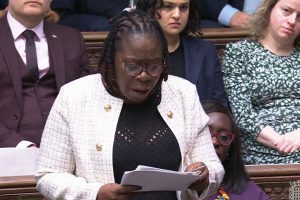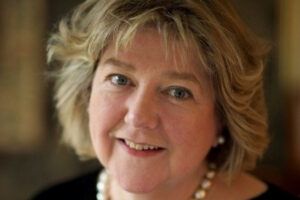Few pieces of health legislation have triggered the passion that the one on assisted dying has in recent months. On 29 November 2024, the Terminally Ill Adults (End of Life) Bill passed its second reading in the House of Commons.
This private members’ bill by Labour MP Kim Leadbeater would allow people aged 18 and over in England and Wales with a terminal illness and a life expectancy of less than six months – subject to approval by two doctors and a High Court judge – to request assistance to take their own life via self-administered medication.
“This bill is stronger in terms of protections for patients and for healthcare workers than most international versions"
Kevin McKenna
A few months earlier, in June, the Royal College of Nursing (RCN)’s 2024 annual congress voted to support the ‘principles’ of assisted dying.
Despite both of these successful votes, public and clinical opinion remains split.
Of three MPs with nursing backgrounds, two voted against the bill and one backed it.
Meanwhile, Our Duty of Care, a group set up by UK-based healthcare professionals, published an open letter to the prime minister signed by more than 3,000 clinicians asking him to oppose the implementation of assisted dying.
Nursing Times has spoken to a selection of nurses and others with an interest in the debate to find out their views.
Related questions you can explore with Ask Nursing Times, our new AI search engine.

If you would like to ask your own question you just need to login, register or subscribe.
Kevin McKenna, Labour MP for Sittingbourne and Sheppey and a former critical care nurse, said his experiences as a nurse informed his decision to back it.

Kevin McKenna
He explained: “I've certainly seen a lot of deaths; I've seen deaths that are good deaths… and absolutely awful deaths.
"Deaths that stayed with me to this day, which were traumatic and could have been managed differently… often with things palliative care wouldn't have helped with, that this bill, at least [for] some of them, would help mitigate.
“That's what my biggest motivation is, and it's always been my view around personal autonomy as well. This is what consent is about, it’s how I live my life – everything from being a gay man to being a nurse, personal autonomy is so important.”
Mr McKenna pushed back against some common reasons people oppose the bill, such as it being a “slippery slope” that would result in the criteria for assisted dying being widened in future, or about people being coerced into ending their lives.
He said the safeguards in the bill, such as the need for two doctors making independent assessments of the patient, were strong enough in his view.
“This bill is stronger in terms of protections for patients and for healthcare workers than most international versions,” he said.
“I have faith that it can be the best thing for patients at the greatest need in the worst-case scenario"
Nathaniel Dye
The other two nursing MPs, Sojan Joseph, who until his election in July 2024 was a mental health nurse, and former district nurse Paulette Hamilton, both voted against the bill.
Ashford MP Mr Joseph told Nursing Times he was not opposed to assisted dying in principle, but that the bill lacked sufficient safeguards.

Sojan Joseph
“My specific concern is around the capacity assessment,” said Mr Joseph, who agreed with some other experts who felt that mental capacity alone should not be enough to give someone the choice to end their life.
“Anybody who’s been diagnosed with a terminal illness… you’re more likely to feel depressed when you hear that you only have six months to live,” he added.
“That can lead to a state of depression for people and your judgement can be impacted by that sort of low feeling. Specific mental health professionals’ involvement [in assisted dying] to assess [a patient’s] decision to go ahead with assisted dying [should be] based on their mental state as well, more than just capacity.”
Mr Joseph said he would vote in favour of an amended bill that more closely involved mental health professionals to judge mental state, not just capacity.
Ms Hamilton, MP for Birmingham Erdington, was more direct in her opposition.

Paulette Hamilton
During November’s parliamentary debate, she said there were “too many blind spots” in the bill, that it was being “rushed”, and that she was worried it would lead to the “slippery slope” of widening criteria in the future as well as cause further damage to the palliative care sector.
Among those campaigning in support of assisted dying are patients such as Nathaniel Dye, a 39-year-old man who was diagnosed with stage 4 incurable bowel cancer in 2022.
Mr Dye would not be eligible for assisted dying if it were legal today, but he told Nursing Times that he wanted it legal as a “safety net” for his future.
“I suppose I’ve been thinking about how I’m going to die,” he said. “For most people, you could say death is an abstract concept… it’s not so immediate. But it is coming up for me, and that’s kind of how I’m approaching my thoughts on assisted dying.”
To him, the option of assisted dying would be for the “worst-case scenarios of an absolutely horrific death”.
“I see it, personally, as a safety net. As something that’s there… if my cancer develops to the point that I am in the most unimaginable pain, and it’s acknowledged through two doctors that there will be no end to that suffering," he said.
Mr Dye explained that he “caught a glimpse” of how bad things can get when his pain relief failed after he was hospitalised with a bowel obstruction two months into his cancer treatment journey, adding: “If that is how I would live, I don’t think that’s any way to live, and I don’t think that’s any way to die.”

Nathaniel Dye
He continued: “I would like to die kindly. Life has been quite cruel to me really. I’ve experienced love and loss, and now I’m dying myself. I suppose I’d like… my death [to] be kind, not for just me, but for my family.”
He acknowledged that nurses may be undecided on the assisted dying debate or concerned about the impact of being involved in such cases.
However, he said he hoped that because the issue was being dealt with “so sensitively and so carefully”, the final legislation would work well for healthcare professionals as well as patients.
“I have faith that it can be the best thing for patients at the greatest need in the worst-case scenario, and that it can be as kind as possible to the nurses who have to look patients in the eye who are dying, because that weighs heavy on me as well,” he said.
"There might be a significant psychological effect for nurses"
June Andrews
In Scotland, a bill similar to the one introduced by Ms Leadbeater was tabled by Member of Scottish Parliament, Liam McArthur, in March 2024.
The key differences are that the Scotland one would allow terminally ill people aged 16, not 18, or over to request assisted dying, and that it would not require the input of a judge.

June Andrews
Professor June Andrews, a registered adult and mental health nurse from Scotland who has written extensively on dementia and care for older people, aired concerns with the safeguards included in both the Scottish and UK Parliament bills.
Like Mr Joseph, Professor Andrews was worried that neither bill mandated a full psychiatric assessment by a mental health professional.
“For something as important as killing yourself, you would think that psychiatric referral would be really important,” said Professor Andrews. “And there’s no psychiatric referral required, so that’s one of the things that is anxiety-provoking.”
She also said consideration must be given to the potential issue of older people choosing assisted dying out of “altruism”, for example to allow inheritance to pass to struggling family members.
The nurse professor, who has a law degree and is a former ethics advisor of the RCN, explained that she was not necessarily arguing against the implementation of assisted dying, but she felt both UK bills needed more detail.
While doctors will be the ones approving assisted dying requests, Professor Andrews said more clarity was needed about the role that nurses would play as key staff in the services where cases were likely, such as care homes.
“The impact on nurses is that they do not know whether or not they're working in places where they're going to be asked to do this,” she said.
She was worried that while nurses may be able to register a conscientious objection to being involved in assisted dying, this may mean they have to move workplaces or job roles, which could be “quite difficult” for the nurse.
Most nurses are used to witnessing death, but Professor Andrews said being involved in an assisted dying case may have a different psychological impact on healthcare staff.
“People dying isn't shocking for nurses. It doesn't devastate them. But on the other hand, what if people had been killed, as it were, which is what assisted suicide does, there might be a significant psychological effect for nurses,” she added.
Meanwhile, Professor Irene Tuffrey-Wijne, a registered nurse and professor of intellectual disability and palliative care at Kingston University, London, had concerns about “unconscious bias” towards people with learning disabilities regarding assisted dying.

Irene Tuffrey-Wijne
Speaking based on her analysis of assisted dying in her home country of the Netherlands and other places, Professor Tuffrey-Wijne said she was yet to see any legislation that had sufficient safeguards for this group of people.
She said: “Can I think of a wording of legislation that is safe? I have to say, I struggle, because I think however you word it, unless you have a society where everybody really is equally valued, and has the same opportunities for the same healthcare... unless you have that society, and the same support for understanding and being really feeling valued from birth, then I don't think it is possible to have a safe law.
“People are disadvantaged, and disadvantaged people when it comes to this kind of legislation are doubly disadvantaged, and that means people will die who shouldn't have.”
Both UK bills are still in the early stages of consideration and need to pass further votes by politicians before becoming law.
The England and Wales one is currently being scrutinised by a bill committee, which could lead to it being amended or expert advice being sought.
The Scottish bill is also being analysed by a committee as part of its first stage in Scottish Parliament.


Have your say
or a new account to join the discussion.